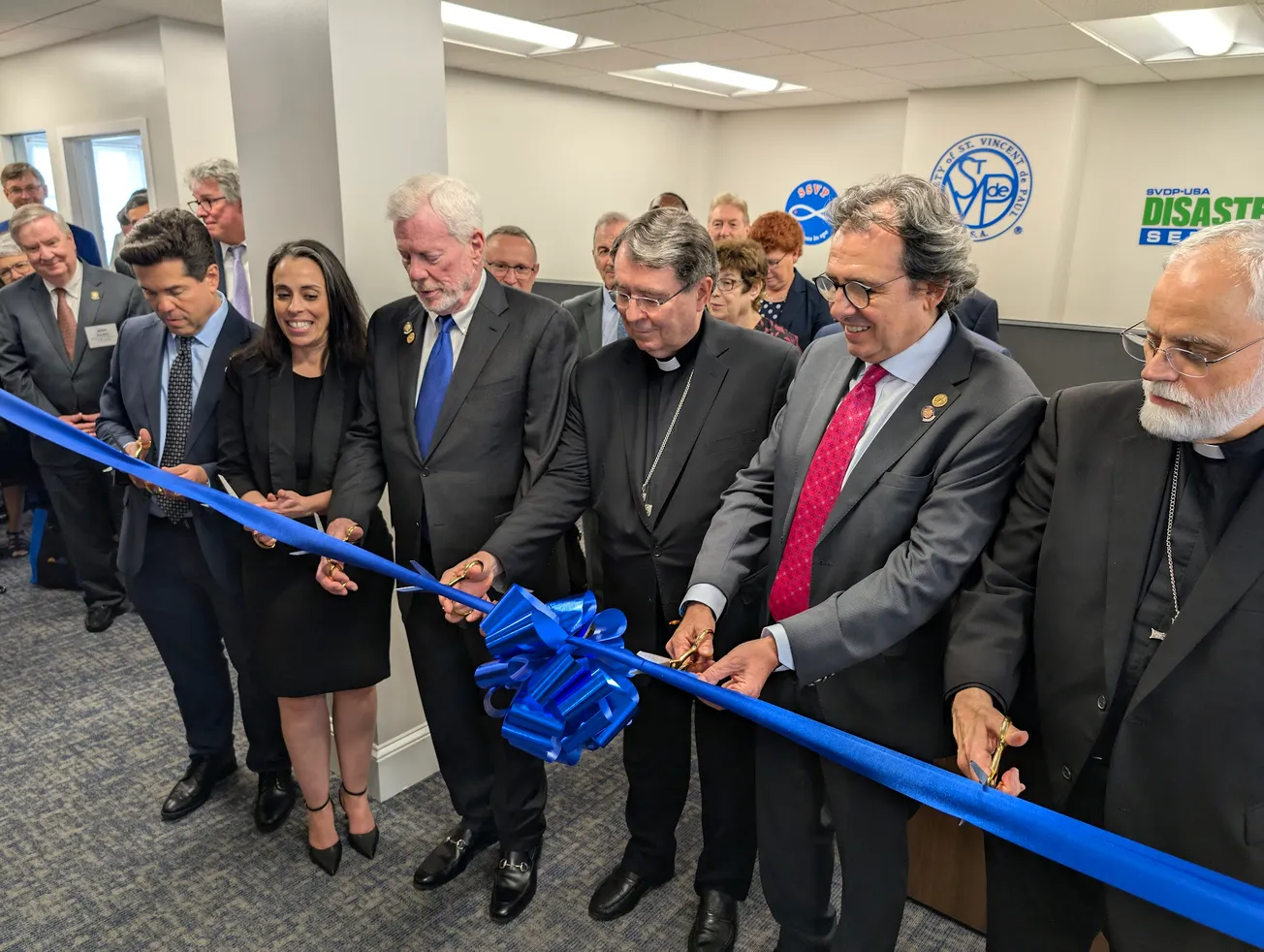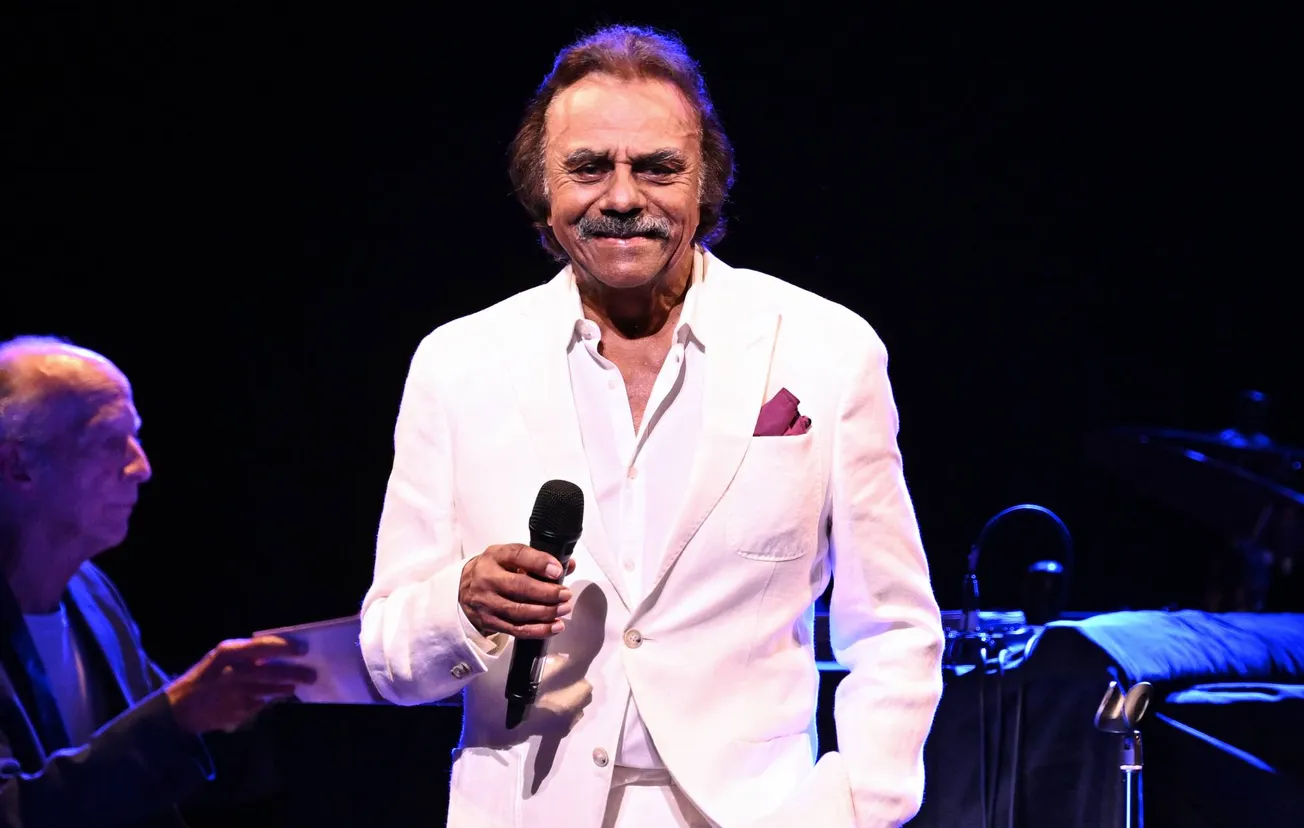The Archdiocese of Newark will celebrate dual diasporic anniversaries Saturday morning at the Cathedral Basilica of the Sacred Heart, including the 25th death anniversary of Auxiliary Bishop Joseph A. Francis, SVD—the first and only Black Catholic bishop in New Jersey history.
The archdiocese’s African American, African, and Caribbean Apostolate will also celebrate 40 years since its founding, with a Mass celebrated at 10:30am ET by Cardinal Joseph W. Tobin, CSsR.
“This is a Mass of thanksgiving because we’re grateful to God for allowing us to still be here after 40 years,” said apostolate director Fr Emeka Okwuosa, SDV.
“We’re also happy to celebrate the legacy of Bishop Francis because his teachings are still alive in the Archdiocese 25 years after his death.”
Saturday at @NewarkBasilica, our African American, African, and Caribbean Apostolate celebrates a double anniversary.
— Newark Archdiocese (@NwkArchdiocese) October 4, 2022
Mass with Cardinal Tobin will commemorate the Apostolate's founding 40 yrs ago & life of Bishop Joseph Abel Francis, who died 25 yrs ago: https://t.co/hyyRQIzdAb pic.twitter.com/9da13QLujq
Like many diocesan Black Catholic ministries, the Newark apostolate was founded during the Back Catholic Movement of the late 20th century, when African Americans around the country agitated for more recognition and inculturation in their Catholic contexts.
The movement had been kicked off in 1968 after the assassination of Dr. Martin Luther King Jr., which inspired the founding of the National Black Catholic Clergy Caucus just days later in Detroit. Their founding manifesto stated, among other things, that the US Catholic Church was a “White racist institution.”
Francis, ordained for the Society of the Divine Word in 1950 as one of the nation’s first 50 openly Black Catholic priests, was an inaugural member of the NBCCC and later served as president.
Born in Lafayette, Louisiana in 1923, Francis had graduated from St Augustine Seminary in Bay St. Louis, Mississippi, the first Catholic seminary intended to educate African-Americans. He came from a family soon to be known across the country, mostly because of his younger brother Norman, who became president of Xavier University of Louisiana the same month Joseph co-founded the NBCCC.
Francis was also a luminary in his own right, however, reportedly one of the first Black Catholic priests to speak out forcefully against racism. In 1962, he founded Verbum Dei High School in Los Angeles, and headed the institution on the occasion of a visit to the city from MLK himself during the Civil Rights Movement. Francis later became superior of the order’s Western US operations, before leading the Southern province where he was trained and ordained.
“He never accepted mediocrity and always pushed for the truth,” Okwuosa said this month.
“He preached the message of Christ and fought against racism even when it wasn’t comfortable. He stood for equality, and he opened the doors of the Church for people who looked like him. He was a leader at a time when it was hard to find Church leaders who looked like him, so he was really a pioneer.”
Francis was elevated to the episcopate in 1976 by Pope Paul VI, also in response to the Black Catholic Movement, which had forcefully demanded more Black bishops as early as the NBCCC founding in 1968. Francis was thus one of the "First 10" openly African-American Catholic bishops, who were known to collaborate on Black Catholic issues nationally.
He was consecrated for Newark by fellow Verbite prelate Harold Perry of New Orleans—the first openly African-American Catholic bishop since 1875. Just three years after his arrival in New Jersey, Francis spearheaded the landmark US bishops’ document “Brothers and Sisters to Us” in 1979, the first group issuance on racism from the American hierarchy.
He continued to push the Church hierarchy and the laity on the issue of racism, including the criticism in 1989 that excitement concerning the bishops’ document did not produce the desired on-the-ground results.
''What is needed is action by the local churches,'' he said.
After the publication of the document, Francis helped to found the Black Catholic ministry in Newark and continued to support the ministry for the rest of his episcopate. The same year it was created, Francis was joined by New York auxiliary Emerson Moore as the only Black bishops in the tri-state region.
“The story of the apostolate is intermingled with the story of the episcopate of Bishop Francis,” Okwuosa said.
Persistent heart issues forced Francis’ early retirement in 1995, and he died in New Jersey just two years later at the age of 73. He has since become the namesake of various Catholic institutions and initiatives, including a scholarship fund in the Archdiocese of Newark, the Catholic Volunteer Network’s annual Bishop Francis Award, the former Bishop Francis Essex High School, and the Verbites’ Bowman-Francis Ministry, a national Catholic organization serving the Black diaspora.
In Newark, Saturday’s liturgy and celebration at the basilica will feature music from across the African diaspora, and attendees are encouraged to dress in ethnic attire. A luncheon will follow the Mass at the Highlawn in West Orange.
The archdiocese has noted that the apostolate will next host its annual Black History Month Mass at the basilica in February, and delegates from the ministry will travel next July to Maryland for the quinquennial gathering of the National Black Catholic Congress.
September 30, 2023, will also mark the centennial of Francis’ birth.

Nate Tinner-Williams is co-founder and editor of Black Catholic Messenger, a seminarian with the Josephites, and a ThM student with the Institute for Black Catholic Studies at Xavier University of Louisiana (XULA).









